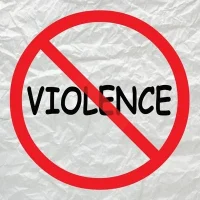Deadline: 15 July 2020
The European Union (EU) has announced a call for proposals to promote the social rights of marginalized communities and indigenous communities in Argentina.
The specific objective (s) of this call for proposals are:
- Improve the conditions of vulnerable rural communities and indigenous communities in Argentina, through the strengthening of their economic resilience according to a framework of sustainable development (agroecological, silvo-pastoral, etc.);
- Improve children’s access to educational services with actions that take into account their particular cultural needs and peculiarities (eg linguistic);
- Improve access to clean water and sanitation
- Improve access to health services, not only by improving its quality, but also its accessibility by linguistic minorities and communities living in remote regions.
Funding Information
- The total indicative amount allocated to this call for proposals amounts to 1,650,000 EUR. The Contracting Authority reserves the right not to award all available funds.
- The subsidies requested within this Call for Proposals will be comprised between the following minimum and maximum amounts:
- minimum amount: 200,000 EUR
- maximum amount: 750,000 EUR
Duration
The initial expected duration of an action may not be less than 30 months nor exceed 48 months.
Location
The shares will benefit the Argentine Republic.
Eligibility Criteria
Lead applicants
- To be eligible for a grant, the main applicant must:
- Be a legal person and
- Not for profit and
- Constitute a specific category of organization, such as: non-governmental organization, public sector operator, local authority or international organization (intergovernmental), as defined in Article 156 of the EU Financial Regulation and
- Establish in Argentina or in a Member State of the European Union or in a Member State of the European Economic Area (Iceland, Liechtenstein and Norway) or in a country that is beneficiary of IPA II (Albania, Bosnia and Herzegovina, Kosovo, Republic of Macedonia of North, Montenegro, Serbia and Turkey) or in a developing country or territory (included in the OECD DAC list of ODA beneficiaries) that are not members of the G-20 or in an overseas country or territories (OCTs) , covered by Council Decision 2013/755 / EU of November 25, 2013, on the association of overseas countries and territories with the European Union, and
- Be directly responsible, with their co-applicants and other affiliated entities, for the preparation and management of the action and not simply limit themselves to acting as an intermediary.
Co-applicants
- Co-applicants will participate in the design and execution of the action, and the costs they incur will be eligible in the same way as those incurred by the main applicant.
- Co-applicants must meet the eligibility criteria applicable to the primary applicant.
Affiliated entities
- The main applicant and its co-applicant (s) may act with affiliated entities.
- Only the following entities may be considered affiliated entities to the main applicant or to the co-applicant (s):
- Only entities that have a structural link to applicants (i.e. the lead applicant or a co-applicant), especially if the link is legal or equity.
- This structural link covers mainly two aspects:
- Control, as defined in Directive 2013/34 / EU on annual financial statements, consolidated financial statements and other related reports of certain types of companies:
- Thus, entities affiliated with an applicant can be:
- Entities controlled directly or indirectly by the applicant (first level subsidiaries or affiliates). They can also be entities controlled by an entity controlled by the applicant (second level subsidiaries), and the same applies to subsequent levels of control.
- Entities that directly or indirectly control applicants (parent companies). They may also be entities that control an entity that in turn controls the applicant.
- Entities under the same direct or indirect control as the applicant (associated companies).
- Thus, entities affiliated with an applicant can be:
- Control, as defined in Directive 2013/34 / EU on annual financial statements, consolidated financial statements and other related reports of certain types of companies:
- Accession, that is, the applicant is legally defined as, for example, a network, federation or association in which the proposed affiliated entities also participate, or participates in the same entity (for example, network, federation or association, … ) than the proposed affiliated entities.
For more information, visit https://bit.ly/2zturKe









































